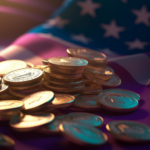The perception of NFTs (Non-Fungible Tokens) in the music industry may have been somewhat misconstrued.
In the 2021 zenith of music NFT enthusiasm, they were touted as the next frontier for superfans to connect with creators, promising a fresh revenue stream for artists. However, with the downturn in markets, they are now somewhat dismissively regarded as a fleeting trend.
Yet, this perspective overlooks the profound potential of NFTs to serve as a pivotal technical foundation for music royalties, a role that remains largely uncharted.
The pressing demand in the music sector is for a revamped licensing infrastructure that seamlessly integrates both master recordings and compositions into the NFT sphere.
Despite the prevailing slump in the crypto market, the present moment offers a golden opportunity to initiate the development of a licensing framework that resonates with the decentralized ethos of Web3.
The existing NFT marketplaces fall short in setting up royalty systems, a fact underscored by platforms such as OpenSea. Entrusting this endeavor to individuals lacking a deep understanding of music licensing nuances would only spawn further complications.
Fortunately, the music industry stands in a favorable position to devise a Web3-aligned licensing model by leveraging current revenue-generating strategies.
Record labels and distributors should spearhead the creation of a framework concerning master recordings, while Collective Management Organizations (CMOs) could concentrate on the publishing dimension.
The time is ripe for CMOs to strategize on licensing publishing rights of musical compositions through NFTs.
The reluctance to delve into this complex matter stems from the ambiguous nature of NFTs as a conduit for music engagement.
Managing digital rights is inherently intricate, posing dilemmas around territorial jurisdiction, a situation exacerbated by the global and frequently anonymous transactions involving NFTs. Yet, this intricacy should not dissuade stakeholders from exploring the rich prospects that this technology harbors.
NFTs, when leveraged as instruments to manage digital scarcity, hold the potential to radically transform the governance of licensed content in the creator economy, fostering partnerships across a wide array of music catalogs.
NFTs, empowered by smart contracts, can delineate and regulate content usage, presenting a novel avenue for content proprietors to capitalize on their assets in emerging distribution channels including the metaverse, gaming landscapes, VR/AR, and AI domains.
Contrary to the limiting functionalities of conventional Digital Rights Management (DRM), NFTs offer inclusive solutions that foster derivative creations and collaborations while automating settlements among rights proprietors.
NFT-centric licensing could herald groundbreaking models such as stem licensing or AI-generated content, while also embedding established norms like mechanical and neighboring rights directly into digital assets.
To adeptly traverse this intricate terrain, the industry should utilize the current hiatus in Web3 music endeavors as a phase for meticulous planning and experimentation.
This interlude provides a conducive environment to meticulously address pivotal challenges and to glean insights from historical experiences in the digital metamorphosis of music.
Such a proactive approach will facilitate the crafting of a resilient licensing infrastructure, poised to evolve in tandem with the dynamic music ecosystem.










